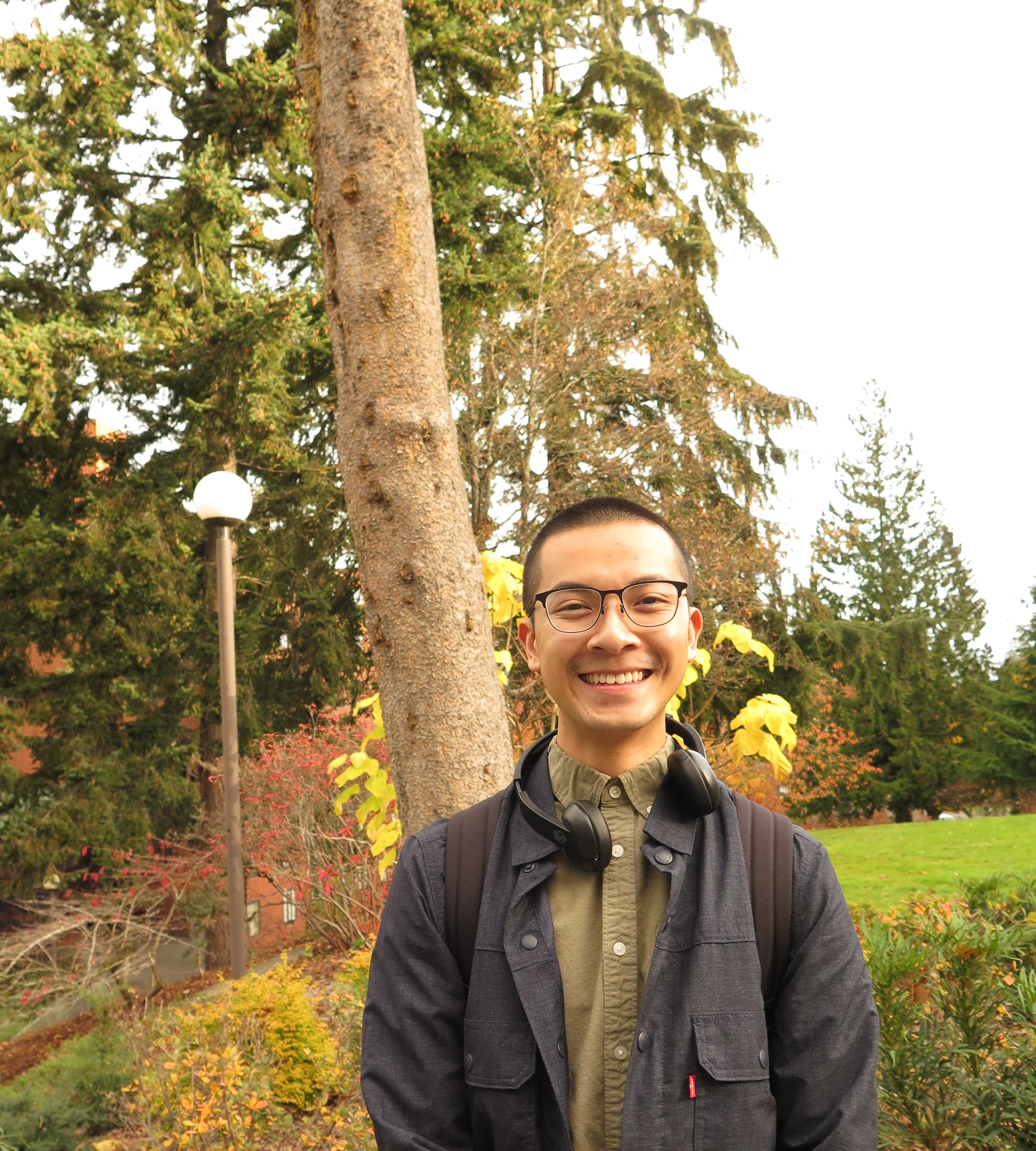Peter Cung

Biography
What does sustainability mean to you?
Sustainability, to me, requires structures and behaviors that don’t exploit certain people or things and that can be continued for generations to come. It’s important to further sustainability because now, as a super senior, I see these freshmen coming into college with the knowledge that has taken me five years to learn. I feel inspired and hopeful to see people already ahead of the curve. Personally, I want to see them continue the work I have to leave behind. It’s my goal to lay as good a groundwork as I can for them, so they can do what they want to do; things I didn’t get a chance to try.
Why is sustainability important to you?
Right now, some people still deny that climate change and environmental injustice are real, but that may not be their fault. They may not have access to education that allows them to see those things. I hope marginalized communities will get the same access and opportunity as the rest of the population, and then everyone might understand each other more easily and we might get more work done. My hope for the future is that everyone can and will participate in work that helps the environmental movement.
What work have you undertaken related to the four pillars of sustainability (ecology, human health, economic vitality, social equity)?
Thinking back, a lot of the work I’ve done related to sustainability this past year has fallen more specifically under social equity. A big piece was helping to develop the Environmental Justice Minor. I learned there are a lot of stories about the relationship between nature and minority groups that aren’t widely taught or told, but their stories are just as important to the environmental movement and are as integral to it as anyone else’s. I’m also part of the Huxley Diversity and Community Affairs Committee, where we are working to support and advance the unique experiences of students, faculty, and staff. Both groups are trying to connect to more students, like me, who aren’t traditionally included in environmentalism.
Hometown
Mill Creek, Washington